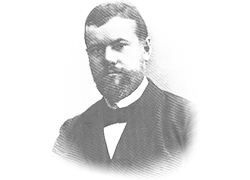My education is in law as well as in sociology; and my two main areas of research are economic sociology (including law and the economy) and sociological theory. From early on I have been fascinated by sociological theory, especially the classics, and I have written on various aspects of the works of Tocqueville, Saint-Simon, Durkheim and Weber. In the early 1980s I became interested in economic sociology, and I have had the pleasure of seeing this field grow from next to nothing into one of the major subfields in contemporary sociology.
One goal in my work in economic sociology has been to get the field accepted and set it on a firm middle-range and pluralistic course. I have tried to accomplish this in various ways – by putting together conferences, anthologies, a reader, a handbook, and so on. My latest work in this vein is a work entitled Principles of Economic Sociology (2003). Along the road I have also made specific studies, one e.g. of Schumpeter and one of Weber. The former work is formally a biography, but addresses in reality the issue of the relationship of economic theory to economic sociology. The study of Weber attempts to construct a foundation for economic sociology by suggesting that economic sociology should not only look at social relations (as sociologists tend to do), but also at interests (as economists tend to do). I am currently doing work on capitalism (together with Victor Nee), on the role of hope in the economy (together with Hiro Miyazaki) and on technology and economy (with Trevor Pinch). These three projects have been undertaken to expand the repertoire of economic sociology and point it in fruitful directions. Since a couple of years I am also interested in questions about ethics and personal courage: what is the difference, say, between civic and physical courage, what makes some people courageous, but not others, and so on. My two writings here are: Civil Courage (Zivilcourage): The Case of Knut Wicksell (Theory and Society 1999) and Auguste Rodin’s ‘The Burghers of Calais’: The Career of a Sculpture and Its Appeal to Civic Heroism (Theory, Culture and Society 2005).
Expertise
Current Research Interests
Economic sociology; economy and law
Selected Publications & Presentations
- Principles of Economic Sociology. Princeton: Princeton University Press, 2003.
- (Editor) Entrepreneurship: The Social Science View. Oxford: Oxford University Press, 2000.
- (Editor) Max Weber: Essays in Economic Sociology. Princeton: Princeton University Press, 1999.
- Max Weber and the Idea of Economic Sociology. Princeton: Princeton University Press, 1998.
- (With Peter Hedström, eds.) Social Mechanisms: An Analytical Approach to Social Theory. Cambridge: Cambridge University Press, 1997.
- (With Neil J. Smelser, eds.) The Handbook of Economic Sociology. Princeton and New York: Princeton University Press and Russell Sage Foundation, 1994; 2nd ed. (forthcoming).
- (Editor) Explorations in Economic Sociology. New York: Russell Sage Foundation, 1993.
- (With Mark Granovetter, eds.) The Sociology of Economic Life. Boulder, CO: Westview Press, 1992; 2nd and enlarged edition, 2001.
- Joseph A. Schumpeter: His Life and Work. Princeton: Princeton University Press, 1991.
- Economics and Sociology: On Redefining Their Boundaries. Princeton: Princeton University Press, 1990.

